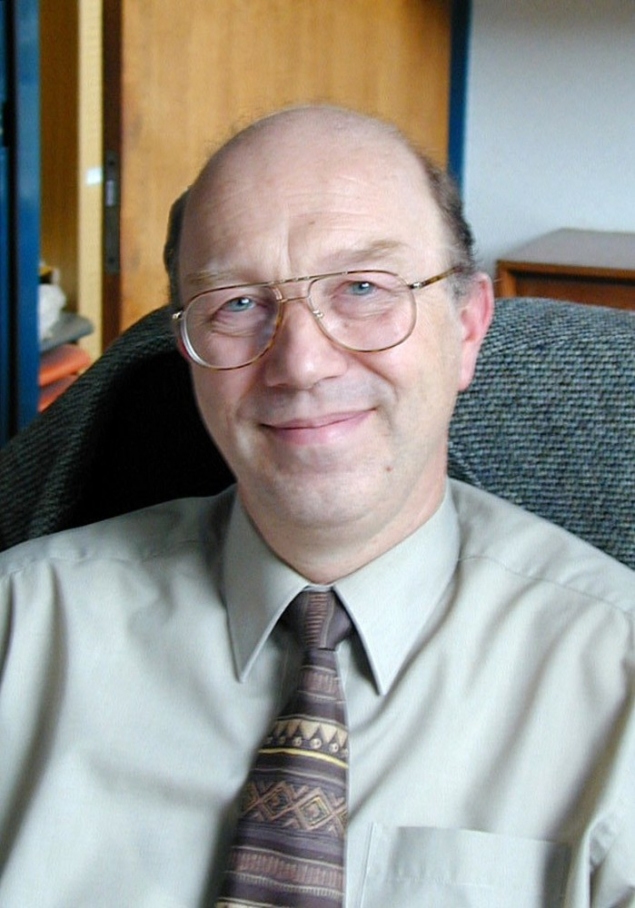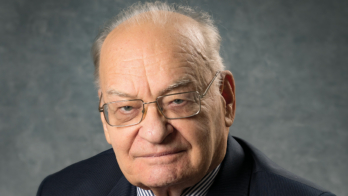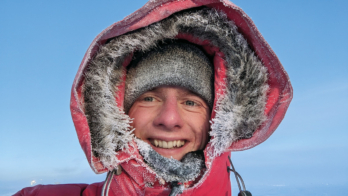
Experimental particle physicist David Saxon passed away on 23 January. A native of Stockport, south of Manchester, where his father was a parish minister, he attended the University of Oxford and obtained his doctorate measuring pion–nucleon scattering at the Rutherford Laboratory, followed by a short postdoc there. His doctoral research took him to Paris and Berkeley, where in both cases he reported that his arrival was marked by the onset of student riots.
After a period at Columbia University, he moved to Illinois to work in Leon Ledermann’s group at the newly built Fermilab. Here he helped to develop electron and muon identification techniques, which would prove fruitful in future electroweak experiments. The group did not discover the W and Z, but did find a signal that was later associated with charm mesons. Returning to Rutherford, soon to be Rutherford Appleton Laboratory (RAL), in 1974 David was quickly promoted to senior researcher. Realising that the future lay in “counter” physics, rather than bubble chambers, he worked on hadron–proton scattering in the resonance region. With the PETRA collider at DESY announced soon afterwards, David helped to form the UK contribution to the TASSO experiment, which made important measurements of electron–positron scattering. The PETRA experiments would go on to discover the gluon, enabling the Standard Model to be constructed with confidence.
After PETRA came HERA, which remains the world’s only high-energy electron–proton collider. David first led the RAL team working on the central tracking detector for the ZEUS experiment, but it was not long before he was invited to the newly reinstituted Kelvin professorship at the University of Glasgow, where he arrived in 1990 and spent the remainder of his academic career. He built the group significantly, its present healthy state founded on what he achieved. In addition to taking Glasgow into ZEUS, he nurtured many other activities – in particular involvement in the ALEPH experiment at LEP – and was instrumental in the design of central tracking systems for projects that eventually combined to become ATLAS.
David was instrumental in the design of central tracking systems for projects that eventually combined to become ATLAS
He was hardly installed in Glasgow before being appointed for several years as chair to the UK’s former Particle Physics Committee. There was no more important position to hold at the time, and David’s good sense, insight and intelligence helped to enable the subject to survive and prosper during a time when funding was tight and the UK funding system was being reorganised. Undaunted, he convinced the group in Glasgow that now was an excellent opportunity to host the 1994 edition of ICHEP.
David was one of the most sociable of people, always a good team player and invariably provocative and stimulating in conversation. Inevitably, the call came to move higher up in the university, first as a highly regarded head of department and later as dean of the science faculty – a post he occupied until shortly before his retirement. Meanwhile, he served on numerous local, national and international committees, including the UK CERN delegation and CERN policy committees, where his perceptiveness was always in demand. The UK recognised his distinguished and important contributions to science with the award of an OBE.
It was a sadness that his final years were marked by Parkinson’s disease, but he still participated in CERN Council meetings. He was at all times supported by his wife Margaret, with whom he had a son and a daughter, and found strength and comfort in his church membership. Those who were fortunate enough to know and work with David will never forget his positive and energetic character, always fair-minded, competitive without being aggressive, and caring. He will be much missed, and inspirational memories will remain.





